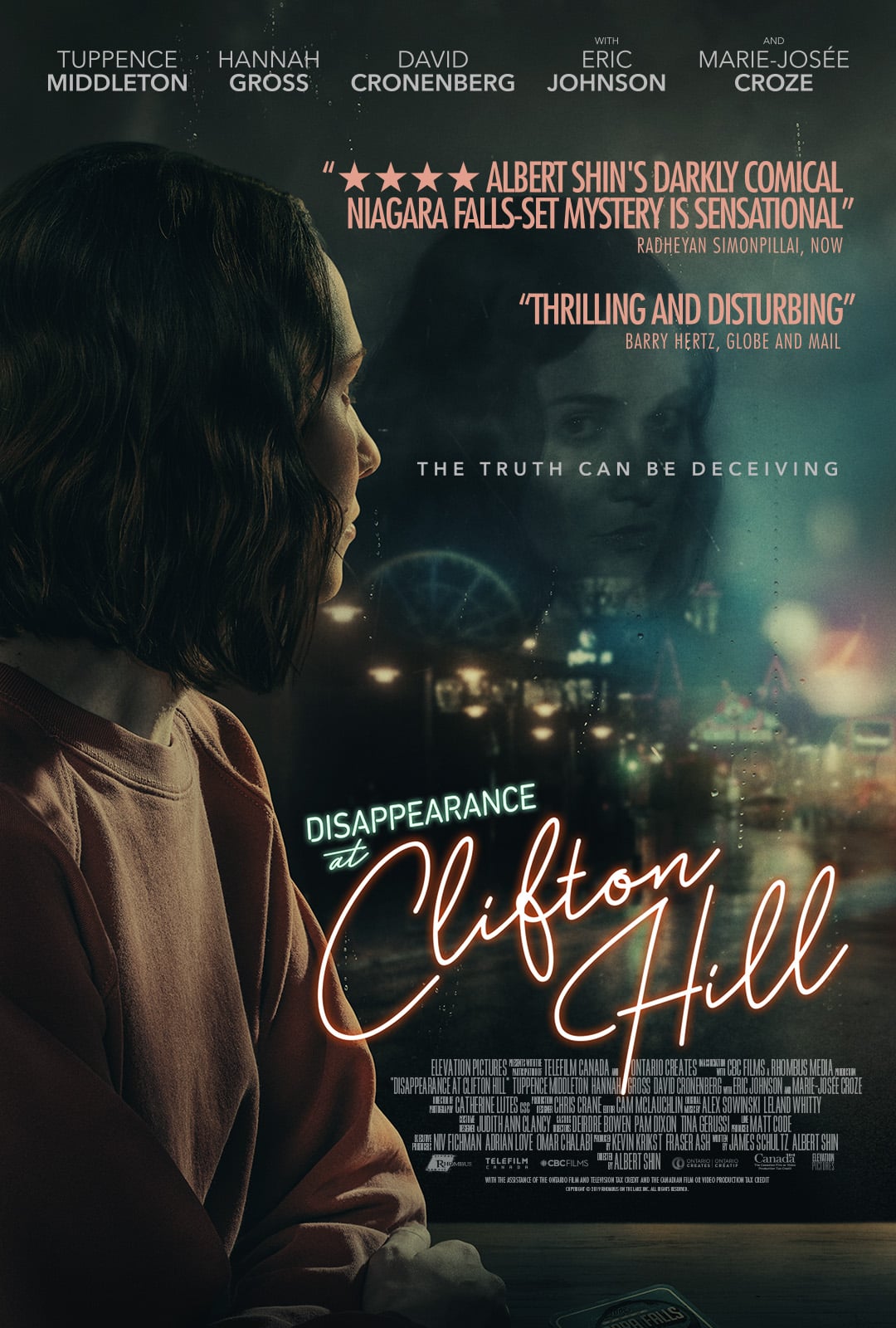
Overall Score
Rating Summary
Clifton Hills; a usually kitschy tourist town adjacent to Niagara Falls on the Canadian border becomes a sickly, murky town filled with contradictions and deceit in Albert Shin’s new neo-noir mystery, Disappearance at Clifton Hill. It’s the off-season at Clifton Hills and the owner of The Rainbow Inn, Abby (a subdued and melancholic Middleton), is haunted by a childhood encounter by the falls involving a boy with one eye. Now an adult and on the verge of losing the motel to a local corporation who only cares about increasing its assets, Abby becomes entangled in the town’s secrets and becomes an amateur sleuth obsessed with solving the mystery that has haunted her entire life.
Shin’s neo-noir works best when Abby is completing her detective work. One can’t go wrong with old-fashioned deep-dive research scenes where a character digs up ancient articles at the local library, and we get a couple of those here. This is complemented by Shin’s effective directorial choice to restrain himself from allowing the audience to get to close to Abby. We always feel like we are at arms-length from our protagonist, understanding her destination but not quite her journey. This pays off in the end, as a trail of breadcrumbs pushes us into a satisfying twist that makes you say “why didn’t I see that before?”as soon as it’s revealed. Meanwhile, the sequences of old VHS tapes that Abby watches are incredibly distinctive in their style, adding to the slight surreal tone that the film casts over you like a shadow. This also draws influence from the twisted, psychological thrillers of the 1980s, most notably the work of David Lynch and David Cronenberg. Speaking of Cronenberg, he has a wonderful little role in this film as Walter, the town crazy who doubles as a scuba diver and podcast host working from the basement of a UFO restaurant.
A film about the search for truth in not only the world around you but in yourself as well, Disappearance at Clifton Hill touches on the breakage of familial bonds and corporate greed in small-town Canada. It’s apparent that Abby’s sister Laure (Gross) cares and loves her deeply, but she always seems to be at odds and ends with her sister regarding her life choices and why she ironically covers up the truth so much. Laure is like a bus that we commute on to try and support Abby, along for the ride but not behind the steering wheel.
For most of its running time, Disappearance at Clifton Hill was an intriguing mystery, however, the pacing and odd editing choices were a little perplexing. The film often jumps around without notice, never leaving enough room for the previous scene to be digested. The filmmakers seemingly chose this to reflect the mental state of Abby, but it chopped up the plot to a degree and made the film drag on, which should never be the case for a 100-minute movie.
In the end, Disappearance at Clifton Hill is a tightly scripted, engaging neo-noir that is elevated by its twists and high-caliber performances. One of the film’s biggest strengths is that it keeps you guessing right up until the very end, which every well-written mystery movie does. If the film is playing in a theatre close to you, it is definitely worth checking it out, not just because it’s a Canadian film but because it’s a solid Canadian film that will leave you with some questions, but ultimately feeling satisfied with what you just watched.
*still courtesy of Elevation Pictures*
Please follow me on Twitter or Letterboxd.
If you liked this, please read our other reviews here and don’t forget to follow us on Twitter or Instagram or like us on Facebook.
Big Star Wars Nerd. Love all kinds of movies, but my favorites are sci-fi, indies, and superhero films. I created SplittingEdge Reviews with my friend Dakota, because we love expressing our views on the different kind of music and films that are out there. You can give me a follow on Twitter: @CorbinStewart12 or Instagram: corbin_stewart
Hope you guys enjoy our reviews!
Discover more from
Subscribe to get the latest posts sent to your email.
